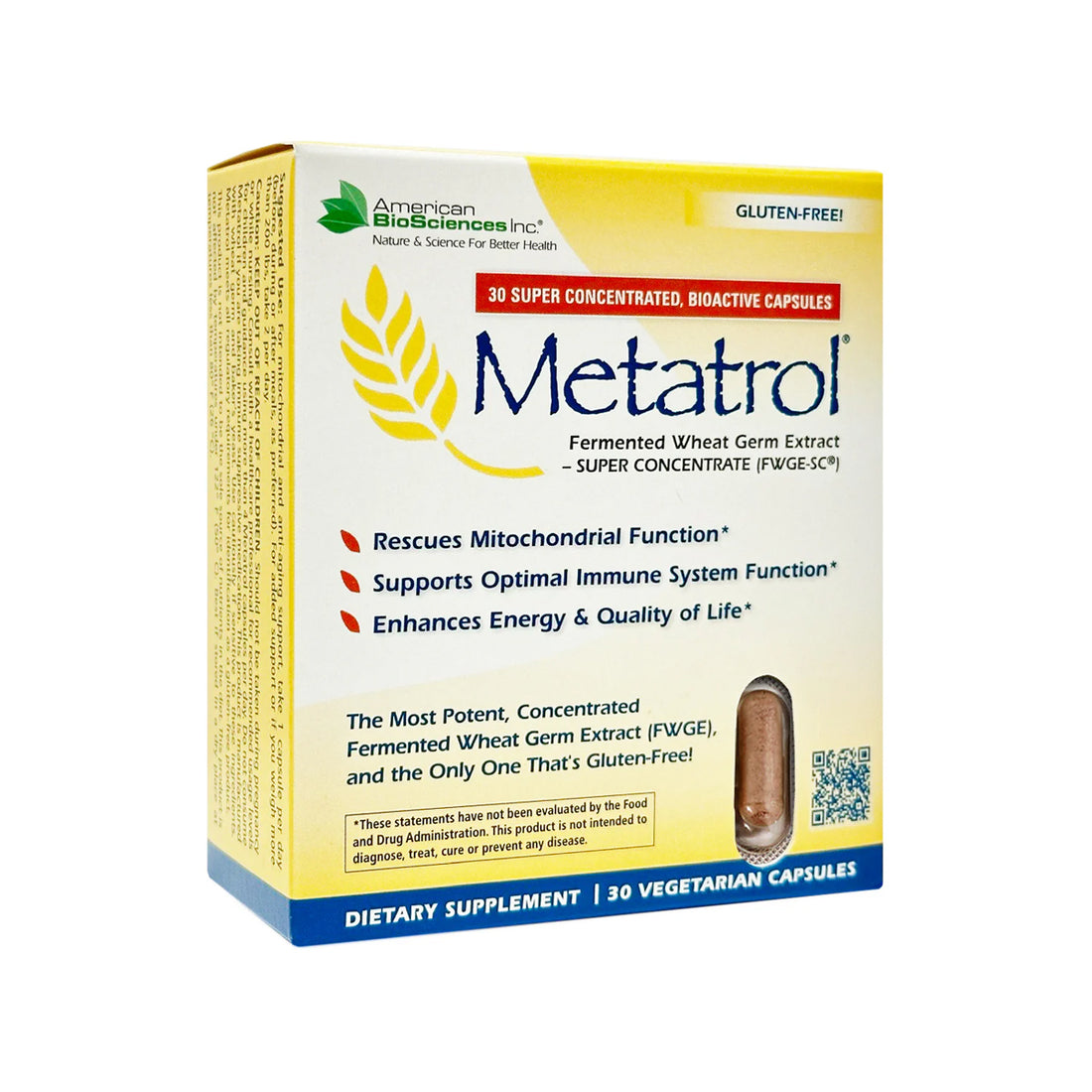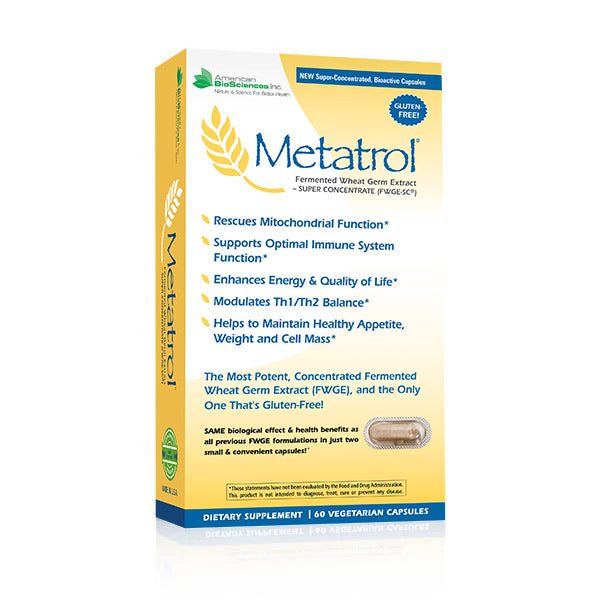Fermented wheat germ extract (FWGE) is a dietary supplement derived from wheat germ fermented with bakers yeast. It has been studied for a range of potential health benefits, including immune system and mitochondrial support. Recently, a new, advanced version of fermented wheat germ extract was introduced called fermented wheat germ extract – super concentrate (FWGE-SC).
Potential Health Benefits
- Mitochondrial Rescue and Aging – In research conducted at one of the world’s most advanced research laboratories, fermented wheat germ extract – super concentrate (FWGE-SC) helped to:
- Change the energy consumption of abnormal cells, making them more “normal” and function properly
- Resume cellular metabolism, helping cells to complete their normal life cycle and potentially play a role in slowing certain aspects of the aging process
- Immune System Support
- FWGE appears to have immunomodulatory effects, meaning it can help regulate or enhance immune system activity. Lab and animal studies indicate it may stimulate immune cells such as Natural Killer cells and T-cells, which play a role in helping to maintain good health.
- Some observational studies and anecdotal reports suggest it may help the immune system respond more effectively to threats.
- Antioxidant Effects
- FWGE contains compounds with antioxidant properties, which can help neutralize harmful free radicals and reduce oxidative stress in the body. This may contribute to general cellular protection and support overall health.
- Cardiovascular and Metabolic Health
- Animal studies suggest FWGE may have benefits for cardiovascular health, including improving cardiac function, enhancing healthy blood pressure, decreasing visceral fat, and enhancing glucose tolerance.
- These effects are attributed to its antioxidant and anti-inflammatory actions, but confirmation in human studies is needed.
Conclusion
Fermented wheat germ extract shows promise in laboratory, animal studies and human clinical research for supporting immune function, providing antioxidant effects, and potentially aiding in metabolic health and healthy aging. However, robust clinical evidence in humans is limited, and further well-designed studies are necessary to confirm its safety and effectiveness for these uses.













